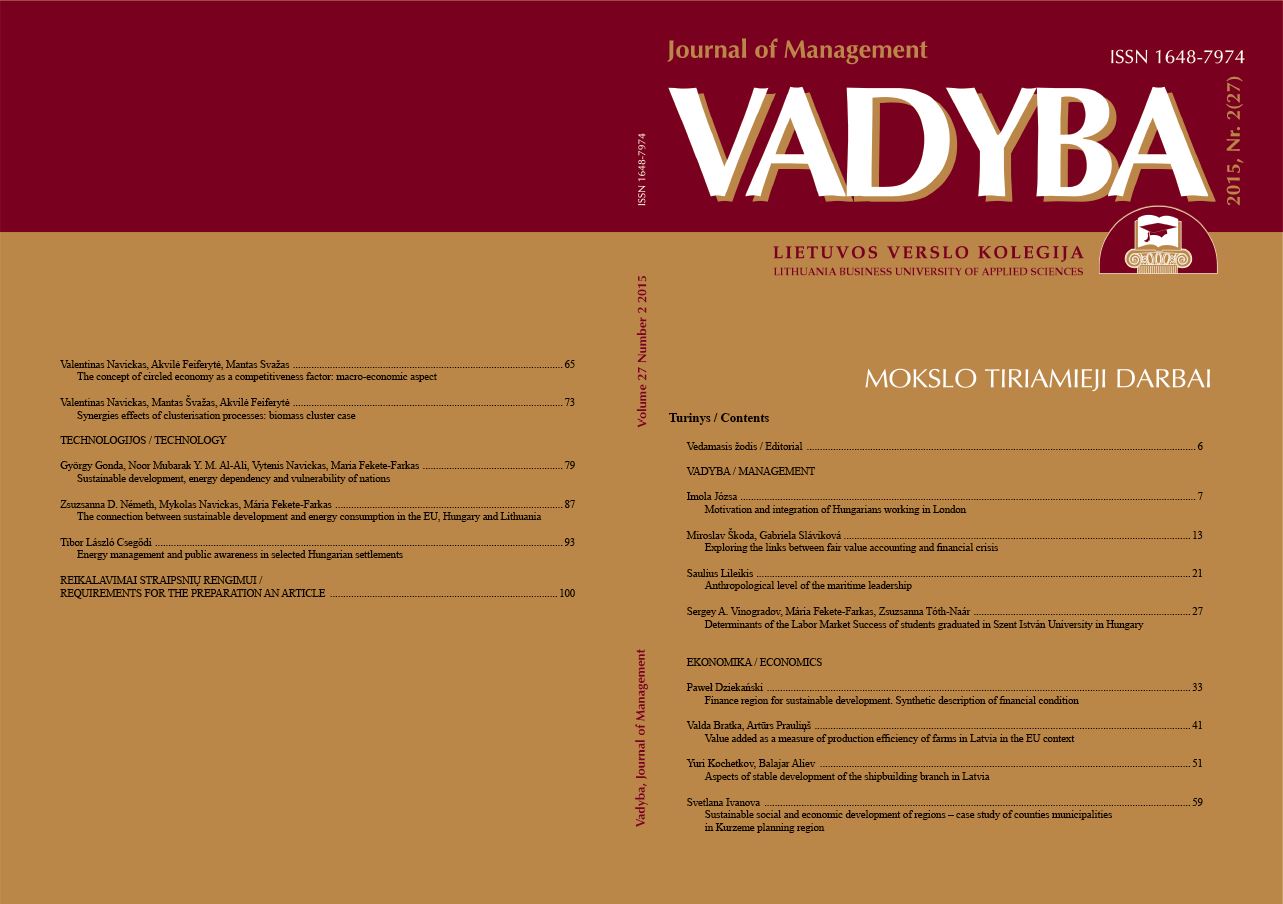DETERMINANTS OF THE LABOR MARKET SUCCESS OF STUDENTS GRADUATED IN SZENT ISTVÁN UNIVERSITY IN HUNGARY
DETERMINANTS OF THE LABOR MARKET SUCCESS OF STUDENTS GRADUATED IN SZENT ISTVÁN UNIVERSITY IN HUNGARY
Author(s): Sergey A. Vinogradov, Mária Fekete-Farkas, Zsuzsanna Tóth-NaárSubject(s): Social Sciences, Economy
Published by: Lietuvos verslo kolegija
Keywords: Labor Market Success; Graduate Career Tracking System; Higher Education Graduates; Principal Component Analysis; Logistic regression Model.
Summary/Abstract: This case study is based on surveys carried on, by the Graduate Career Tracking System (GCTS) in Szent István University (Hungary). The “GCTS” surveys provide good opportunity to follow up careers of the graduates, to evaluate their opinion on their jobs and tasks and to examine how the graduates think about the usefulness in labor market of skills and competencies have been gained by universities as well.In our survey (amongst young graduates’ success in labor market) we have examined not only the classical economic indicators - such as income, chance of becoming employed and the average time till the first employment after graduation, but some other factors as well: the link between the current/last job and the qualification awarded, willingness to change job, judging the prestige of job, job satisfaction in various aspects of work: the content of work, the technical part of the work, income and benefits, career advancement opportunities, and personal and material conditions of work.We have taken into consideration the multi-dimensional aspects of success of labor market, and we have tried to explore success factors as well. The research is intended to select groups of indicators (factors), which contents based on common professional information given by the respondents.Logistic regression models have been set up to analyze cause of the factors of the labor market success or (failure).In terms of success characteristics presumed to be relevant, we chose those factors, which ones adapted by the Graduate Research survey in 2015, (participation in mobility programs during the period of studies, family status, home, family financial background, parents' graduation, work experience, etc).During our examination we have differenitiated the target population not only by the level of training area (agricultural sciences, economics, engineering, teachers training, liberal arts) but training level (BA/BSc, MA/MSc) as well.We examined differences in structure and overall level of labor market success amongst sub-populations formed by group creating factors.The statistical methods applied: independent samples t-tests, Principal Component Analysis, logistic regression models, generalized linear models. Statistical processing of data performed by the IMB SPSS 22 software package.
Journal: VADYBA
- Issue Year: 27/2015
- Issue No: 2
- Page Range: 27-31
- Page Count: 6
- Language: English

